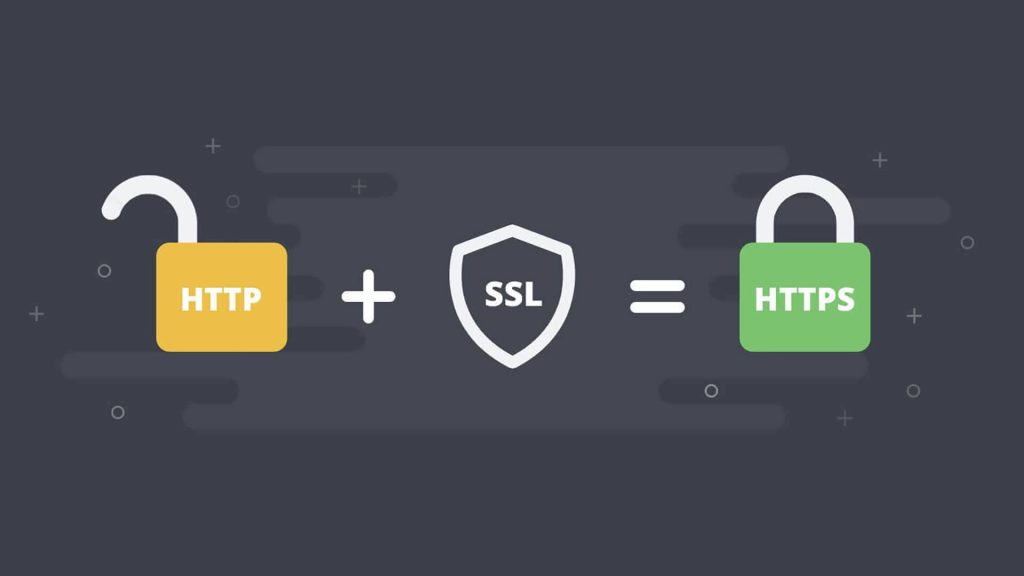Hosting services with real-time fast performance?

What is an SSL Certificate, and how does it work?
Buy Cheap
SSL Certificate
Before: $6.16/month
Now: $4.16/month
Now: $4.16/month
- Secure Your Website
- 100% Certified
- No Hidden Fee
- 24/7 Support
SSL certificates are essential for website security and help create a trusted environment for users. But what is an SSL certificate, and how does it work? Why are they essential for online businesses? Let’s discuss all about the SSL certificate in detail.
What is SSL?
Secure Socket Layer (SSL) is a security protocol. This protocol provides a secure, authentic and encrypted internet communication between client and server. It is used to protect the customer’s information.
What is an SSL Certificate?
It is a digital certificate that gives authenticity to a website. These certificates allow SSL communication. These certificates are authorized by the Certificate Authority (CA) to establish a secure internet connection. Businesses need SSL certificates to keep the information of their customers private and secure online transactions. SSL certificates are used to secure VoIP, emails and other communication over the network.

How does an SSL Certificate Work?
SSL certificate uses the private and public keys that encrypt and decrypt data and information. Furthermore, the private key can also decrypt data that is encrypted by the public key. In addition to this, SSL certificates ensure that the website is real. A browser verifies the certificate’s validity when a browser connects to a website with an SSL certificate. While doing registration domain or buying web hosting for the website companies offer you SSL Certificates with them.
This process works in the following way;
- When a browser connects to a website to search for something.
- The browser sends the verification message to check the authenticity of the web server with an SSL certificate.
- The web server responds to this request by sending a copy of its SSL certificate along with its public key.
- Now, the browser checks the information and makes sure that the SSL certificate is valid and the website is genuine.
- Now, the web server decrypts the message using the private key to start an SSL encryption session.
- After this, encrypted data is exchanged between the web server and the browser securely.
Elements of an SSL Certificate:
Usually, an SSL certificate contains the following information;
- A domain name: usually, a certificate is issued to a specific domain name.
- Name of authority that issued the certificate: SSL certificates are issued by the Certificate Authority, and this also includes the name of the authority who issued the certificate.
- Name of the organization: the person or website’s owner who claims a certificate.
- Digital signature of the central authority .
- Associated domains of the primary domain.
- Issuing date of the certificate.
- The expiry date of the certificate.
- The public key contains the letters, numbers and characters, but the private key is not revealed.
Types of SSL Certificates:
The following are the types of SSL certificates that provide different levels of security to the website. So, the selection of any certificate depends upon the requirements of your website.
Types of SSL certificates on the basis of Validation
1. Domain Validated certificates or DV
These are cheap validation certificates that confirm the identity of a website. They are suitable for small businesses and portfolio websites that want to launch HTTPS quickly.
The owner can get this validation certificate by sending an email to the Certificate authority. He can also alter the DNS record associated with the registered domain for DV. For this validation certificate, the organization is only required to prove that it controls the domain. The process of certification is generally automated by itself. Furthermore, it offers a lower type of security. For this certificate, the owner doesn’t need to provide any information.
2. Organization Validated Certificates or OV
This type of SSL validation certificate is more trustworthy than a domain certificate. To obtain an OV certificate, the owner needs to provide some basic information about the organization, such as name and address. There is the possibility that certificate authority may investigate more about the organization.
Like DV, its process is not self-automated, it requires manual requests by the owner. If the organization is not dealing with sensitive data, then an OV certificate is a suitable choice for them.
3. Extended Validation Certificates or EV
The EV is more expensive and trustworthy than the other two types of SSL certificates. It is suitable for large organizations and e-commerce businesses that hold sensitive data.
For assigning this certificate, CA will perform a thorough review of the organization. This review is done to make sure that the address you provide is valid and that website or business is registered.
Some other SSL CertificatesVariations
There are some different variations available within these authentication types, such as
1. Wildcard SSL Certificates
Wildcard certificates are certificates used to secure a base domain and its multiple subdomains. This SSL certificate is less expensive for securing multiple domains than buying a single domain certificate.
2. Single Domain Certificates:
These certificates are used to secure one domain only. You can’t use these certificates for authentication of other domains or the subdomains of that registered domain. Single-domain certificates only secure all the pages on that domain.
3. Multiple Domain Certificates
These SSL certificates are used to secure multiple domains and subdomains with the same ownership.
Always keep in mind that they don’t support subdomains by default, and you will need to specify the name of both hostnames if you want to secure two domains or subdomains with a single MDC.
4. Unified Communication Certificates
These certificates are the type of multiple-domain certificates, as the website’s owner can secure multiple domains. Initially, these certificates were introduced to secure live communication servers and Microsoft Exchange servers. You can also use these certificates as EV SSL certificates to verify more security and display a padlock on a browser.
Importance of SSL Certificate for a Website
It is essential for a website’s security and identification to protect it from hackers. The following are the advantages of buying an SSL certificate for a website.

Encryption of the User’s Data
SSL certificates encrypt the user’s data by using the private-public key pairing. SSL certificates make sure that data is encrypted and third parties can’t read the data.
Protection of the data from hackers
This certificate provides protection to the user’s data from hackers and cybercriminals. They can’t steal the user’s information and data due to encryption.
Build the Trust of Customers
Along with encrypting the websites, the SSL certificate also builds the trust of the customers on the website. If the website doesn’t have any SSL certificate, then a warning suggesting your website is not secure will pop up on your screen, and customers will not revisit the website.
Helps to meet PCI Requirements
If you are running a website for online payment dealings, your website must comply with payment card industry data security standards. Having an SSL certificate is mandatory among the 12 requirements of the PCI to avoid penalties from PCI.
Enables a Website to Use a Secure HTTPS Address
HTTPS is the secure form of HTTP web address, and an SSL certificate is essential for HTTPS web addresses. HTTP makes websites more trustworthy along with securing the data.
How can a Website Obtain an SSL Certificate?
If you are looking to buy an SSL certificate to validate your domain name, you will need to contact a certificate authority. Otherwise, when are you going to buy a domain and hosting for your website? Navicosoft will provide you with an SSL Certificate free of cost without charging anything. A CA is usually a third party or any outside company that generates and gives SSL certificates. They will digitally sign a certificate using their own private key and verify it through the client’s devices. They usually charge a fee for certificates.
Before claiming a certificate, the website’s owner will need to
- Choose the type of SSL certificate valid to meet the requirements of its company, such as if you are dealing with sensitive data, you can also request an EV certificate. To obtain a certificate, the user will need to follow the given steps;
- First, prepare your server, make sure your WHOIS record is updated and check that the company name and address you are providing are correct.
- Now, generate a certificate signing request; you can also get help from your web hosting company.
- Furthermore, submit all this to the CA to validate the company details.
- When the certificate is issued, install and activate it on the server. You can get your web hosting company’s technical team support for activation.
- After activation, you can load over HTTPS. Now, all the traffic coming to and from your website will be secure.
What Happens When SSL Certificates Expire?
Usually, SSL certificates don’t come with a lifetime span. These certificates have a validity period of 27 months. After the specific period, they expire and the owner needs to renew them. It makes sure that the organization’s information is accurate and up-to-date. Otherwise, they need to renew certificates with updated data.
When the user accesses the site, receives a message that the website is not secure to use, which means that the SSL certificate of the website has expired. Furthermore, it leaves the websites under threat of low traffic compared to competitors. If you are running a large business, you can manage your certificates to manage the expiry of your certificates and renew them before expiring for secure transactions on your websites.
Conclusion
The above discussion has made it clear what an SSL certificate is and why it is necessary to provide secure browsing to the users. It is a digital certificate that is essential for every type of website to identify the website, build the trust of customers on the website and prevent interruption in traffic flow. Furthermore, it is also essential to renew your SSL certificate before the expiration to avoid any type of issue.
FAQs
Can I run my website without an SSL Certificate?
It is possible to run a website without an SSL certificate. But there is a high risk of hacking and it is quite risky.
Why is an SSL certificate important for SEO?
It is important to have a trustworthy website for Google’s SEO ranking. While an SSL certificate makes a website trustworthy and gives it an identity.













